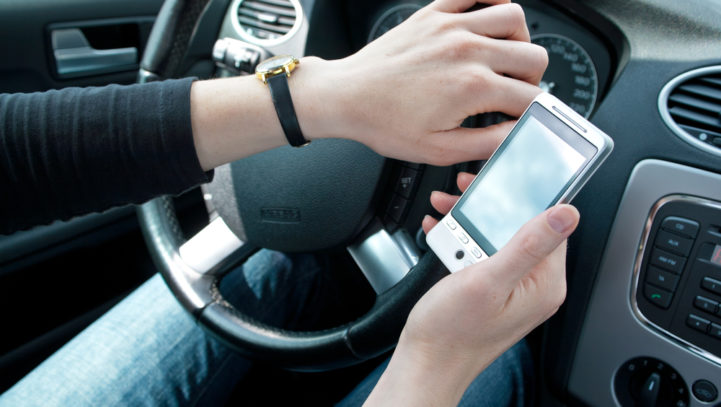Florida Governor Signs Legislation Meant to Crack Down on Texting and Driving
Florida recently passed legislation that would make a major change to the way the state treats texting and driving. The new law was passed by the Florida Legislature during its most recent session and was signed by Governor DeSantis. When it goes into effect on July 1, this new law will give police an increased ability to take steps to hopefully prevent drivers from operating their vehicles while staring at a screen and answering a text message instead of paying attention to the road.
Texting and driving has quickly become the greatest menace to Florida drivers, and this new law will mark a welcome change to the state’s prior lax attitude towards texting while driving, which has resulted in hundreds, if not thousands, of accidents all across the state. Many of these accidents resulted in personal injuries, property damage or even fatalities because a driver was more focused on his or her phone than the road and the safety of the surrounding drivers.
Texting and Driving: A Public Menace
Texting and driving has become an epidemic across the country, but particularly in Florida. According to a Tampa Bay Times report, Interstate 4, stretching from Daytona Beach on Florida’s East Coast to Tampa on Florida’s West Coast, is the most dangerous interstate of the more than 70 interstates that crisscross the United States. This is due in part to the number of drivers on that road who are texting while driving. According to the article, several recent studies have found that most drivers are distracted more than half the time they are behind the wheel. Another study said 61 percent of drivers use their cellphones on some drives, most drives or every drive.
Nevertheless, less than 1,700 tickets were issued throughout the entire state of Florida related to texting while driving in 2018. This likely is due largely to the fact that law enforcement’s hands were tied when it came to pulling over drivers who were obviously texting and then ticketing them for such an event. Instead, police were required to watch the person to see if they committed a so-called primary offense, such as speeding or running a red light, before the police officer could pull someone over and ticket them for texting while driving.
The New Florida Texting and Driving Law
According to another Tampa Bay Times story, this one on the recently-passed Florida texting and driving legislation, Governor DeSantis has signed a bill that will toughen penalties on those who choose to text while operating a motor vehicle as well as giving Florida law enforcement increased powers to pull over and ticket those who are suspected of texting and driving.
The new law makes texting (including messaging, emailing and other forms of typing on a mobile device) a primary violation under Florida law, rather than a secondary violation as it formerly was. That means police now can stop a driver solely on suspicion of texting while driving and ticket the driver for that offense. The bill also more broadly bans any use of a handheld cell phone while operating a motor vehicle in a designated school crossing, school zone or a road work zone. Hands-free use of a mobile phone while operating a motor vehicle will remain legal. In addition, the new law also would not ban the use of a cell phone while a driver is stopped at a light waiting for the light to change and also would permit drivers to use their phones for purposes of navigation and to read emergency messages.
Texting while driving becomes a primary offense on July 1. The ban on handheld use in school and work zones can be enforced starting October 1, with an education period of warnings until January 1, 2020, when fines can be imposed by police for drivers caught using their cellphones in prohibited zones.
Making texting a primary offense allows police to take more direct action against motorists who commonly text or use their phones to check messages or for other purposes while behind the wheel. The penalties are not particularly onerous, however, with a fine of $30 and court costs for a first offense and, for a second offense, a fine of $60 along with three points on a driver’s license. Therefore, although this new law is a step in the right direction, there is some question as to whether it will have any practical effect on driver behavior.
Contact Schwed, Adams & McGinley
At Schwed Adams & McGinley, P.A., our experienced personal injury attorneys have more than 150 years of combined legal experience and many of our firm’s cases stem from motor vehicle accidents in which our clients have suffered catastrophic injuries or have been the victim of a wrongful death due to another driver who was texting and driving while operating a motor vehicle. No matter the type of accident or scenario, contact our experienced attorneys at contact@schwedlawfirm.com or (877) 694-6079 for a free consultation today if you have been injured or a loved one has been killed or injured in a motor vehicle accident in Florida in which the motorist at fault in the accident was texting or otherwise using a cell phone while driving instead of paying attention to the road.





